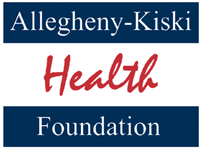If you notice that you tend to get a case of the “winter blues” as soon as the seasons begin to change, you may have a specific type of mood disorder known as seasonal affective disorder, or SAD. Although SAD most commonly occurs at the onset of fall and typically lasts through the winter months, some people may experience symptoms in the spring or summer. In either case, these significant changes in mood that occur at the same time each year can have lasting effects on your mental and physical health and therefore shouldn’t be left untreated.
If you or a loved one struggle with SAD, it can be helpful to first know and understand the common symptoms of the disorder, as well as the steps you can take to help manage them.
Seasonal Affective Disorder Symptoms
A type of depression, seasonal affective disorder can have a negative impact on a person’s overall mood, outlook on life, and wellbeing. Thus, many of the common signs of SAD, especially when it occurs in the winter months, can be similar to those of major depression. These may include:
- Feelings of helplessness or worthlessness
- Low energy levels
- Loss of motivation or interest in hobbies and activities
- Changes in appetite
- Unexplained weight loss or gain
- Trouble sleeping
- Difficulty focusing or remembering things
- Social withdrawal
Tips for Coping with SAD
While feeling down or depressed on occasion can be a normal part of life, having these feelings for a prolonged period of time can be detrimental to your overall health and wellbeing. If you’re having trouble dealing with seasonal affective disorder, talk to your doctor about possible treatment options that may be appropriate for you.
In addition to seeking professional help, there are numerous lifestyle changes that you can make to help improve or alleviate your symptoms, such as getting regular exercise, eating a balanced diet, spending time outdoors, and making your home brighter and sunnier.
For more information about mental health resources available in the community, a healthcare expert from the Allegheny-Kiski Health Foundation Community Mental Health Program would be happy to assist you.






